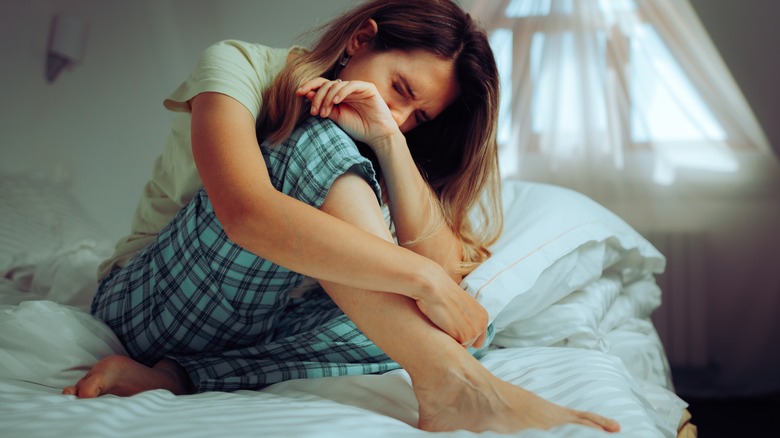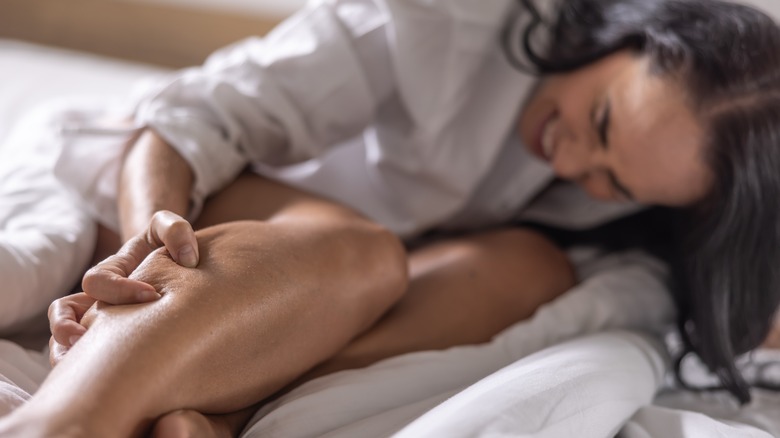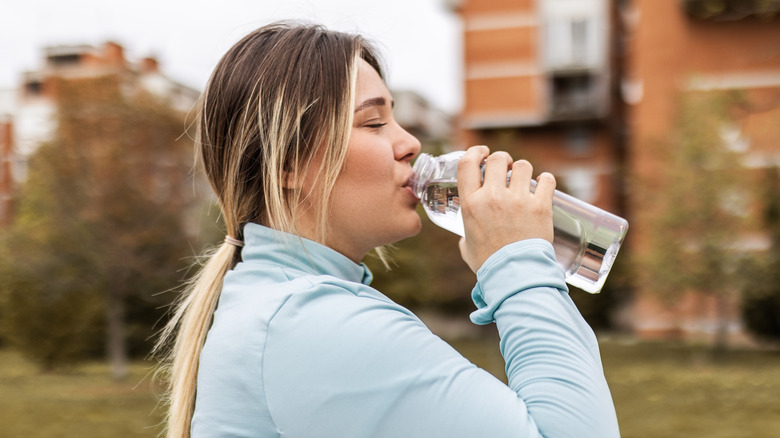What It Means When You Experience Muscle Cramps At Night
After a long day of work on your feet, you savor the moment your body hits the bed. You fall into a delightful sleep, feeling your body and mind get its much-needed restoration. You then shift your position a moment and zap — your calf muscle seizes up. It's painful enough to make you sit up.
While you might not have noticed a muscle strain or overexertion after exercising or throughout your day, Delaware Integrative Healthcare says muscle cramps might flare up right when you're trying to relax. That's because strained muscles can be more vulnerable when they're at rest. Think about it: If you crash on your bed after being on your feet all day, your calf muscle no longer has the stretch it had to sustain. When the muscle shortens, you may experience a cramp. Oftentimes, muscle cramps and spasms can be caused by something as simple as an irritated nerve or a need for more blood flow in that area.
What causes night cramps
Many activities and situations can cause muscle cramps at night, according to Delaware Integrative Healthcare. Your muscles can spasm if you work out or stretch too hard one day. Muscle cramps might also signal a misalignment of your body, so certain muscles might work harder while others become shortened over time. A vitamin B12 or other deficiency might also cause muscle spasms or cramping. A herniated disc could also put excessive strain on your surrounding muscles.
According to the Medical University of South Carolina, athletes of all levels and ages can experience cramping due to a loss of electrolytes through heavy sweating. Dehydration overall can cause muscle cramps even in non-athletes, and this is more likely if you consume a lot of caffeine. Alcohol use disorder, renal disease, and hypothyroidism are also conditions linked to muscle cramps.
Muscle cramps can become more common as you get older. According to the University of Utah Health, one-third of people over 60 have had muscle cramps at night within the last two months. Medications for high blood pressure, heart disease, and cholesterol also increase your risk of experiencing cramps.
Reducing the likelihood of night muscle cramps
An occasional cramp at night isn't much to worry about, but you can take measures to reduce them in the future. The Sleep Foundation suggests talking to your doctor or pharmacist if you suspect your medication might be causing your night cramps. Dehydration is often a cause of cramping, so be sure to consume enough fluids throughout your day to keep your systems adequately hydrated. Unless you know you're extremely dehydrated already, you might not want to drink a glass of water before bed. Otherwise, you'll wake up needing to go to the bathroom.
A warm bath in Epsom salt might help relieve cramps because the magnesium sulfate could ease cramps related to a magnesium deficiency. Incorporating a self-massage or stretching program before bedtime can also help settle your body and mind for a restful sleep. You'll also relax some of the tense muscles in your calves or the tight tendons on the bottom of your foot. If a leg cramp wakes you up, stretching might also help relax the cramp so you can get back to sleep.



